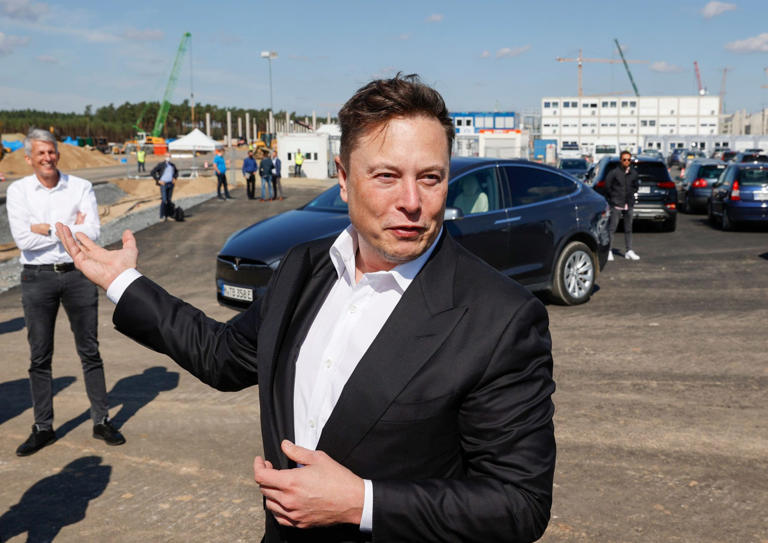Tesla, the electric vehicle (EV) giant led by CEO Elon Musk, faced a tumultuous quarter marked by a significant downturn in its sales figures, a development that caught many investors off guard. This downturn marked Tesla’s first year-over-year sales decline since 2020, a stark departure from the company’s previously robust growth trajectory. Analysts and industry insiders had anticipated a challenging quarter for Tesla, given several factors that had cast a shadow over the company’s operations.
One of the primary reasons behind Tesla’s sales decline was the slowing demand for its vehicles in China, a crucial market for the company’s global expansion efforts. Challenges such as increased competition from domestic Chinese EV manufacturers, regulatory uncertainties, and consumer preference shifts contributed to Tesla’s struggles in maintaining its sales momentum in the region. Additionally, an arson incident at Tesla’s Gigafactory in Germany disrupted production, further exacerbating the company’s production woes.
Supply chain disruptions stemming from geopolitical tensions in the Red Sea region also posed challenges for Tesla, hampering its ability to procure essential components and materials needed for vehicle manufacturing. These disruptions added complexity to Tesla’s operations and impacted its production capabilities, leading to lower-than-expected vehicle deliveries.
The disappointing quarterly results sent shockwaves through the investment community, prompting renowned Tesla bulls like Wedbush analyst Dan Ives to characterize the report as an “unmitigated disaster.” This sentiment underscored growing concerns among investors about the company’s future growth prospects and its ability to sustain its market dominance amidst increasing competition and operational challenges.
Tesla’s share price experienced a significant decline, plummeting by 58% from its peak in November 2021. This decline reflected investor apprehensions about Tesla’s ability to navigate the evolving landscape of the EV market and maintain its competitive edge in the face of mounting headwinds.
Critics of Tesla’s business model pointed to the company’s heavy investment in manufacturing capacity and its reliance on negative working capital as potential vulnerabilities. Tesla’s vertically integrated approach, once hailed as a key strength, now faced scrutiny as sales faltered and concerns about the company’s financial stability grew.
Furthermore, intensifying competition in the EV market posed a formidable challenge to Tesla’s market dominance. The emergence of new players offering cheaper alternatives, particularly in China, posed a direct threat to Tesla’s market share and profitability.
In response to the sales downturn, Tesla intensified its efforts to promote its self-driving technology as a means of stimulating demand. However, the effectiveness of this strategy remained uncertain, as the company continued to grapple with challenges related to technology development and regulatory approval.
In conclusion, Tesla’s recent sales decline has raised significant doubts about the company’s long-term prospects and its ability to maintain its position as a leader in the global EV market. The challenges posed by slowing demand, intensifying competition, and operational disruptions underscore the need for Tesla to adapt its strategies and address key weaknesses to regain investor confidence and sustain its growth trajectory.
